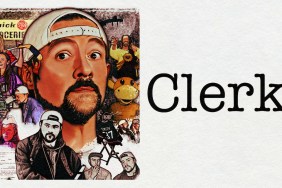
I debated on writing individual reviews for Criterion’s Blu-ray releases of The 400 Blows and The Last Metro, both hitting store shelves on March 24, but I couldn’t help believe director Francois Truffaut is just as interesting as the films he made, if not more interesting. It was that angle I wanted to bring to my commentary and I didn’t see how that would be possible or helpful to the reader if broken up into two parts.
Before receiving my review copies of The 400 Blows and The Last Metro I already owned 400 Blows as well as Truffaut’s Jules & Jim on DVD as part of my Janus Collection, but I had not watched either. I was a Truffaut virgin and had actually held off watching 400 Blows since owning the collection because I knew the Blu-ray would be arriving and I wanted to wait and see it for the first time with the best possible picture, and this Blu-ray does not disappoint and Criterion’s presentation of both of these films opens doors to so many avenues one could begin with these two discs and follow a cinematic path that would likely never end.

Telling the story of young Antoine Doinel (Jean-Pierre Léaud), 400 Blows is a mixture of Truffaut’s life as well as improvised line readings and decisions from Léaud as director and his 14-year-old star formed a cohesive relationship supplying a surprising level of realism. The title of is an idiom for “raising hell”, which I almost look at as a slight over exaggeration, but something may be lost in the translation. Antoine certainly finds himself in trouble as the film plays out, but I would tend to say he is more misunderstood and ignored than he is a troublemaker. Antoine is looked at as a bother to his mother and while his stepfather seems to have an early affection and understanding for Antoine, even that relationship soon begins to dissolve as I look at this film as a young man’s search for understanding, freedom and a sense of direction in a world he has a hard time fitting in.
One of the beauties of this film is it can be interpreted many different ways, an audience member can either connect with Antoine depending on your upbringing, perhaps see a childhood friend in how his life is sorted or perhaps feel entirely separated from the character. However, no matter what your interpretation of the story is, the film’s final moments and in fact the film’s final frame, leaves the entire finale up for personal interpretation, but is likely to have all audience members coming to the same conclusion no matter how they had looked at the film along the way.
Criterion’s presentation is flawless and superior to the DVD transfer in every way. Folks that like to complain about digital noise reduction will be happy with the level of grain preservation and the high-definition picture gives a much better representation of the black-and-white color scheme with rich blacks and crisp and in no way overblown whites. This is the second black-and-white release from Criterion following their Blu-ray debut with Carol Reed’s The Third Man, a release that found some detractors due to its dedication to film grain preservation. I loved the Criterion Blu-ray release of The Third Man especially the level of film grain, but those that found it overwhelming won’t have the same problem with The 400 Blows as this is a flawless restoration yet it doesn’t have as much grain detail as Third Man did.
The supplemental material is ported over from the original Criterion DVD release. The two included audio commentaries are each of high quality, the first with cinema professor Brian Stonehill and another by Truffaut’s lifelong friend Robert Lachenay. The Stonehill version is professorial as you would expect, but may grow tiresome to many as it is a very monotone approach and read more as an audio essay than anything else. However, Lachenay’s commentary is fantastic as he personal touch to the commentary as he served as assistant director on the film and was the inspirational source for the character known as Rene, Antoine’s best friend.
After the commentaries comes a group of archived interviews, auditions, newsreels and television excerpts and it is here where I found an endless fascination with Truffaut and a greater appreciation for his work. A six-minute feature labeled “Auditions” includes an interview with Léaud, an improvised dialogue between Léaud and Patrick Auffay (plays René in the film) and a second interview/audition with Richard Kanayan. Léaud’s interview session is short but shows a frankness and confidence in his personality making it is easy to see what attracted Truffaut to him for the lead role. Llater interviews following the film’s release show Léaud talking about how he was told by Truffaut to improvise lines, something that comes quite naturally as you will see in the included test scene between him and Auffay.
The interviews with Truffaut are where things began to click and my interest with the director ramped up as he begins talking about his influences such as Jean Renoir and a deep infatuation with Alfred Hitchcock. He also begins rattling off film titles that inspired him and your first instinct is to begin writing them down. I began to do so, but stopped as the list continued to grow and grow, but I hope to one day go back and begin my journey as well as hope to pick up some of Truffaut’s writings, especially “Hitchcock” which is talked about in Annette Insdorf’s commentary on The Last Metro, a film I consider to be almost the exact opposite of 400 Blows, but in all the right ways.










